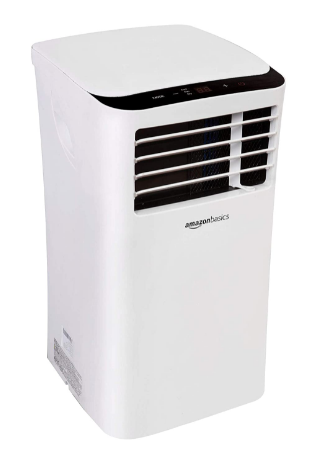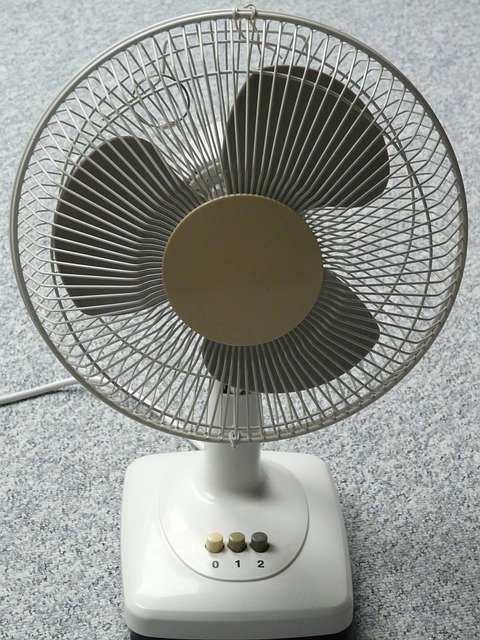Top & Best Dehumidifier Review 2022 – How to Select Ultimate Buyer’s Guide
Dehumidifier: Discover the best 2022 models
Today we are going to talk about dehumidifier, an item that is essential in houses that have a lot of condensation, as this can end up generating mold.
Activities such as bathing, washing and cooking end up generating a lot of humidity in the environment, and this can end up harming your family’s health, leading to problems like asthma and allergies.
In this article we are going to talk about these dehumidifiers, and the advantages of having such equipment at home, in addition to giving unmissable tips on the main products available on the market today.
First, the most important
- Dehumidifiers not only help to combat mold and moisture in your home, but also help to better preserve food in your kitchen.
- It is important that you check the noise level of the device before purchasing it, so that it does not disturb the tranquility of the environment.
- The timer function is excellent for saving electricity, as it automatically turns the device on and off.
You may also like:
- Air humidifier: What is the best model of 2022?
- Air Circulator: How to choose the best in 2022?
- Fan: Which type is best for you in 2022?
The best dehumidifiers: Our suggestions
Dehumidifiers are increasingly on the market today, being sought especially by people who live in more humid regions and who constantly suffer from problems such as mold and condensation.
We will present below the best models of dehumidifiers, so that you can choose the one that best suits your space.
- The ideal dehumidifier for bathrooms and laundries
- The 500 ml dehumidifier
- The well-evaluated model
- The best cost-benefit
Buying Guide
Dehumidifiers are not easy equipment to choose, as they depend a lot on the size of the environment in which you want to place them. However, they are essential to improve air quality.
The Buying Guide below aims to serve as a source of research for you to buy the most suitable dehumidifier for your environment, and to improve the air quality of your home.
What is a dehumidifier?
The dehumidifier appeared to end a very common problem in the home of people who live in very humid places – mold and condensation. Currently, these problems can be solved using this equipment.
They can have different sizes, features and even different types. Read on to learn all about these functional devices for health and allergy prevention.
Did you know that indoor air quality can be five times worse than outdoors? Therefore, the importance of investing in devices such as dehumidifier or air circulator .
What are the advantages and disadvantages of the dehumidifier?
In addition to reducing mold and condensation, they also help to reduce dust mites, which are responsible for causing allergies and respiratory problems.
If placed in the kitchen, they also help to preserve food better, since humidity is one of the factors that most help ripen fruits and vegetables more quickly, and, consequently, favors their rotting.
Among the disadvantages of a dehumidifier, one of them is the possible increase in your electric bill at the end of the month. So that this does not happen, look for a device that has an energy efficiency seal with A or B marks, which means that the equipment is low-cost.
Another characteristic that can be a factor of regret after purchasing a dehumidifier are the noises it may make, which can be very annoying, especially if it is placed in the room in which you sleep.
Usually the number of decibels it produces is shown in the equipment description. It is also possible to know this information through the evaluations of other users about the product.
Below is a table with the main advantages and disadvantages of a dehumidifier:
What is the difference between a dehumidifier with silica, reservoir or electronics?
One of the things you should ask yourself before thinking about the type of dehumidifier you want to purchase is the size of the environment in which you want to place it.
The silica ones, for example, are more suitable for smaller environments such as drawers or cabinets, as a small equipment like this removes only 50 ml of water per day from the air.
Dehumidifiers that have a reservoir can be placed in a larger area of your home, and work through the deposit of water removed from the air in the container that is attached to the equipment.
Electronic dehumidifiers that do not have a reservoir are usually devices that you plug into an outlet and work in small environments such as cabinets, drawers, and others.
The following is a table with the main differences between these types of dehumidifiers:
How much does a dehumidifier cost?
The cost of a dehumidifier can vary from R $ 30 for electronic models to R $ 10,000 for a device with a lot of capacity and many functions.
Also check how much your electric bill will increase with this device working in your home or office, as this must be another factor that must be associated with the price.
Where to buy a dehumidifier?
Many places sell dehumidifiers, such as department stores and electronics stores. You can also find them online at sites like Amazon. Through these sites, you will receive the product in the comfort of your home.
Purchasing Criteria: Features for evaluating a dehumidifier
There are certain characteristics that are fundamental to a dehumidifier, such as those listed below:
- Capacity
- Viewfinder
- Noise
- Energy efficiency
Below we will detail the most important features so that you can choose the most suitable equipment for you.
Capacity
The water tank dehumidifier must have the right capacity according to the environment in which you want to use it. After all, it is useless to buy equipment with little capacity, which will not have an effect on the environment, or more than it needs, and which uses more electricity.
The sizes of dehumidifiers and the ability to absorb moisture are as follows:
- Mini : Minis are those that eliminate up to 8 liters of moisture per day. Ideal for drawers, cabinets and bathrooms.
- Small : Small dehumidifiers can remove between 8 and 15 liters of moisture per day. Ideal for small spaces.
- Medium : Medium equipment eliminates 15 to 20 liters of moisture per day. They are used in spaces considered medium and large.
- Large : Eliminate up to 36 liters of moisture per day and are suitable for large spaces.
If you are in doubt about the size, opt for a dehumidifier with greater capacity. After all, a bigger capacity will mean a bigger water reservoir, which will guarantee that it will not be filled quickly and that it will not need to be changed several times a day.
Viewfinder
Having a dehumidifier that has an easy-to-operate display is very important, especially if it has options for setting humidity levels, such as, for example, “dry”, “very dry” and “normal”.
If the display allows you to put a timer to set the time of day that you want it to be on, it is even better, because then you won’t have to remember to activate and deactivate the device.
Also check if the display is in Portuguese, after all, it is much easier to handle equipment that is in your own language.
Noise
It is always important to check the amount of decibels that the equipment produces when it is in operation, because if it is very noisy, it can disturb the sound of the television, or even disturb your sleep if it is placed in the room.
The models with greater capacity can produce up to 67 decibels, which is equivalent to the sound of a busy office or an air conditioner.
So check this feature carefully so that you don’t regret your purchase later.
Wattage
Of course, this is also a fundamental criterion. The power is related to the strength that the dehumidifier has to work. The more watts the model has, the better its performance will be. However, be careful. High power often also means more noise and more expense on the electric bill.
Energy efficiency
It is always important to check the energy efficiency of the device before purchasing it, that is, the energy expenditure it has when using the maximum power.
As already mentioned above, this efficiency is demonstrated through a stamp that is glued on the product box, and that stipulates a score from A to E, in which the devices classified as A are the least spenders, and E the most spenders.
To save energy, the timer function that is present in some equipment helps a lot, because it is possible to set a time for the device to stay on, without you having to remember to turn the dehumidifier on and off.
The simple positioning of the appliance in the house can already make a big difference in its energy efficiency, as they are usually more efficient when placed in the center of the environment.
People Also Search For
best dehumidifier
best dehumidifier for bedroom
best dehumidifier for bedroom 2022
lg dehumidifier
best dehumidifier 2022
best dehumidifier for apartment
best dehumidifier for basement
best dehumidifier for florida
ansio mini dehumidifier
dehumidifier at home
kedsum dehumidifier
ivation 70 pint energy star dehumidifier
frigidaire ffad7033r1
eva-dry e-333 portable dehumidifier
best dehumidifier australia 2022
best dehumidifier reddit
homelabs 70 pint dehumidifier
lg puricare ud701kog3 70-pint dehumidifier
best dehumidifier uk 2022
pro breeze 20l dehumidifier
electrolux ambiflex exd20dn3w
ecoair dd122
meaco 20l low energy refrigerant dehumidifier
ecoair dd322 classic desiccant dehumidifier
frigidaire dehumidifier
what size dehumidifier do i need
industrial dehumidifier price
People also ask
What brand of dehumidifier is best?
What dehumidifier does Consumer Reports recommend?
What are the top 10 dehumidifiers?
Are dehumidifiers worth it?
What is the lifespan of a dehumidifier?
Will a dehumidifier kill mold?
What should I look for when buying a dehumidifier?
What is the best rated dehumidifier for basements?
Do dehumidifiers use a lot of electricity?
Should I get a 50 or 70 pint dehumidifier?
Should you sleep with a dehumidifier on?
Should a dehumidifier run constantly?
Can a dehumidifier do the whole house?
Where should you place a dehumidifier?
Can you drink the water from your dehumidifier?
How do I know if my dehumidifier is working properly?
Will a dehumidifier cool a room?
Do I need a dehumidifier in every room?
Does sunlight kill mold?
What humidity grows mold?
What humidity level kills mold?




